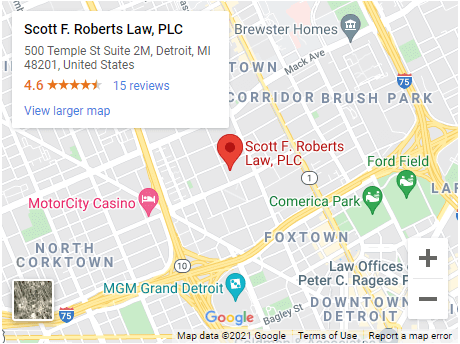In a recent rule publication, the Cannabis Regulatory Agency (CRA) has released a new regulation regarding the sale and transfer of immature plants. The market for the sale and transfer of immature plants is expanding because immature plant sales allow cultivators and dispensaries to cut harvesting timelines and get products in customer’s hands faster. The CRA’s new guidance aims to streamline the immature plant seed-to-sale process by giving greater sale and transfer leeway for cultivators in Michigan with a Good Agricultural Collection Practices (GACP) certification.
The CRA defines an immature plant as a non-flowering plant produced from a cutting, clipping, tissue culture, or seedling that is not more than 8 inches wide and no taller than 8 inches from the soil it is planted in. Immature plants are essentially used to expedite the harvesting process and obtain viable product faster than starting from a plant seed. Put simply, immature plant sellers have already done the hard part for you. Because there are new ways to clone and transfer immature plants from the mature, tested “mother” plant, the CRA is relaxing some of its restrictions previously placed on the sale and transfer of these immature plants.
So how can you become an immature plant retailer? To be eligible, cultivators MUST obtain a Good Agricultural Collection Practices (GACP) certification. This is a specific certification mandated by the state of Michigan, very similar to Good Manufacturing Practices (GMP), that serve as a state declaration that whatever practice a business is utilizing, it is considered to be an acceptable standard requiring less regulatory scrutiny.
In response to this relaxed regulatory scrutiny, the CRA is removing some immature plant transfer/sale requirements that previously burdened cultivators looking to enter the market. The biggest change is that a GACP-certified cultivator does NOT need to use a licensed cannabis transporter to sell/transfer immature plants to cannabis retail locations (which was previously required). This change removes the largest fee and obstacle for cultivators hoping to enter the immature plant market. Additionally, the immature plants sold by GACP-certified cultivators do not require additional safety compliance testing upon arrival to the cannabis sales location – likely due to the nature of immature plants being genetically identical to the mature plant they were derived from (which is why some refer to them as “clones”).
Another requirement loosened by the CRA was the necessity for cannabis retail centers purchasing immature plants to pre-order their immature plants from a selling cultivator. For a GACP-certified cultivator, this requirement is relaxed, allowing a dispensary to simply supply a 7-day plan to the GACP cultivator for the number of immature plants needed at the dispensary in that time frame. This will demand less prep work on the dispensary, and less concern for the cultivator when a dispensary is unable to purchase the entire pre-order.
GACP-certified cultivators still must follow all outlined procedures, such as having the GACP certification to even qualify for these relaxed regulations, prior to selling immature plants. They must ensure the purchasing retail location has either entered a pre-order or entered an order identifying the number of plants needed under the new rules.
Additionally, cultivators must also include a “sell-by date” for dispensaries to guarantee they sell the immature plant before it is able to grow into a mature plant, and thus no longer be considered “immature”. This “sell-by date” timeline is 7 days from the day the cultivator packaged the plant for sale. The cultivator must also include basic care instructions for the immature plant, informing a purchaser how to successfully grow the plant into a healthy and viable product.
Lastly, an attestation from the cultivator is required, stating that only CRA approved ingredients were used in the growth of the provided immature plants. Further details include a requirement that cultivators’ standard operating procedures (SOPs) include how they ensure dispensary orders are compliant and – since no licensed transporter is required – how the cultivator will transport the immature plants safely without any chance of contamination during transport.
The purchasing dispensary/retail location must also keep basic records to purchase immature plants from a GACP-certified cultivator, such as an SOP for how many plants they intend to pre-order or use in a 7-day period. The dispensary will have to ensure that the provided care instructions are relayed to a purchasing customer, as well as the attestation that only CRA approved ingredients were used in growing the immature plant (including notice that the plant has not been tested in its current form).
The ostensible goal of these rule changes is to incentivize cultivators to obtain their GACP certification. Being GACP-certified not only guarantees a cultivator is in fact conducting their practice at the highest acceptable standard, but also allows the CRA to review the cultivator with less scrutiny.
GACP standards were developed by the World Health Organization (WHO) in 2003 with the aim of improving the quality of medicinal plants being used in herbal medicines in the commercial market. The WHO released these guidelines in order to contribute to the quality assurance of medicinal plant materials used as the source for herbal medicines, aiming to improve the quality, safety, and efficacy of herbal products offered to consumers.
If you are a cultivator looking to obtain your GACP certification, either to begin selling immature plants to retail centers or to simply guarantee your agricultural practices are never flagged as non-compliant with the CRA, it is usually beneficial to consult with experts to simplify the process. The experienced cannabis legal team at Scott Roberts Law Firm has recently recognized the value of the GACP certification and has familiarized itself with the certification process. As a result, cultivators looking to become GACP-certified should contact the firm here to find out how we will help you and your business.




